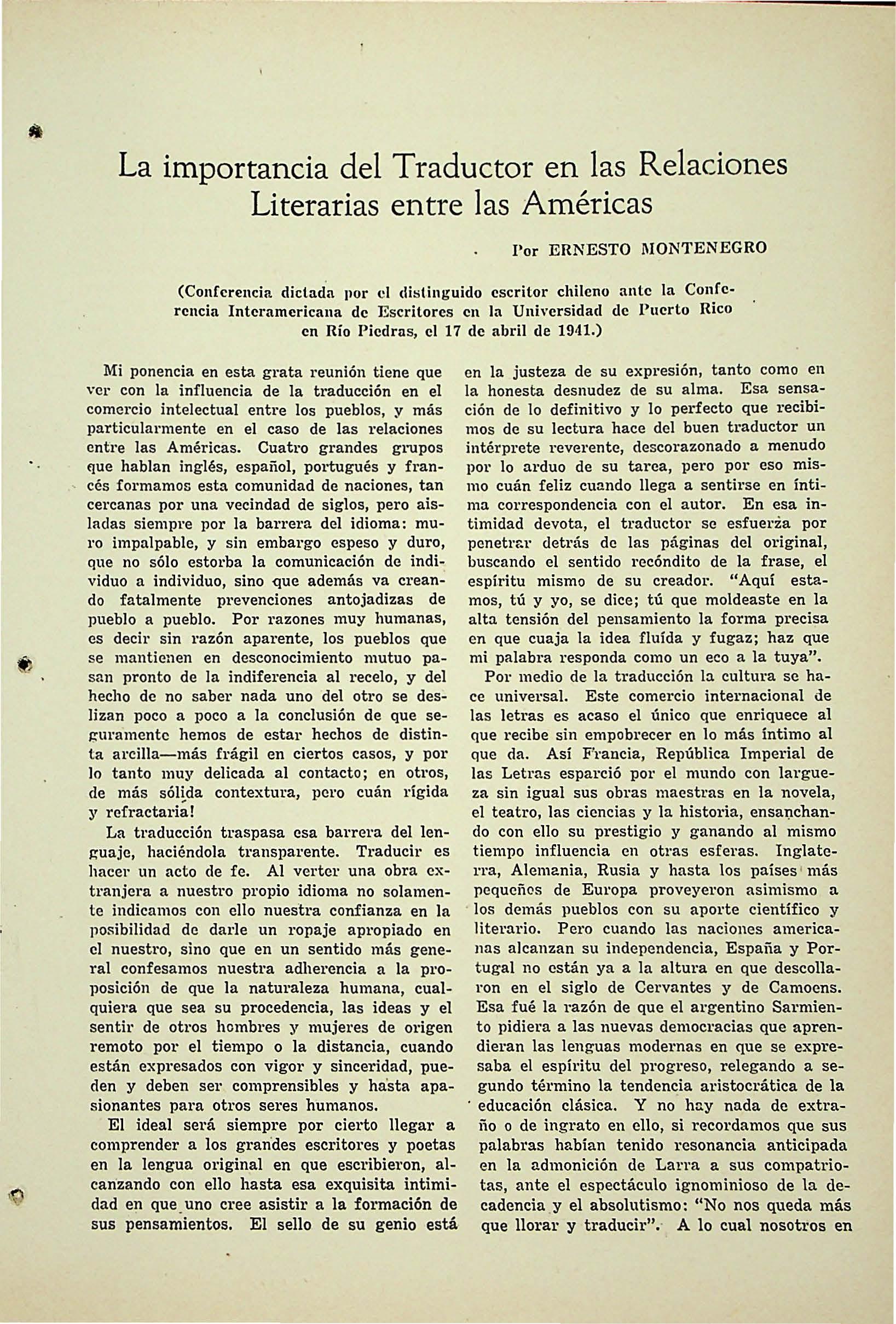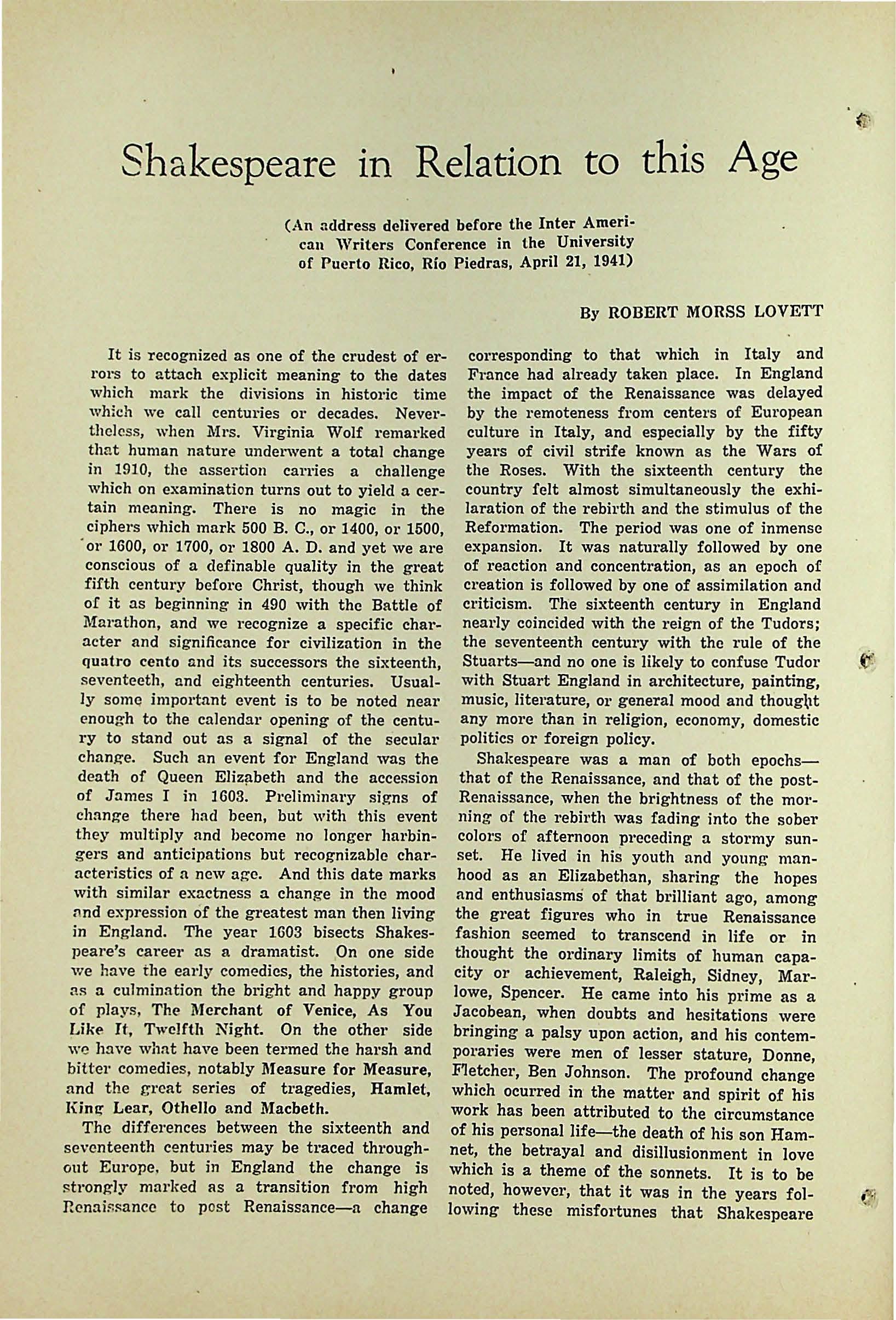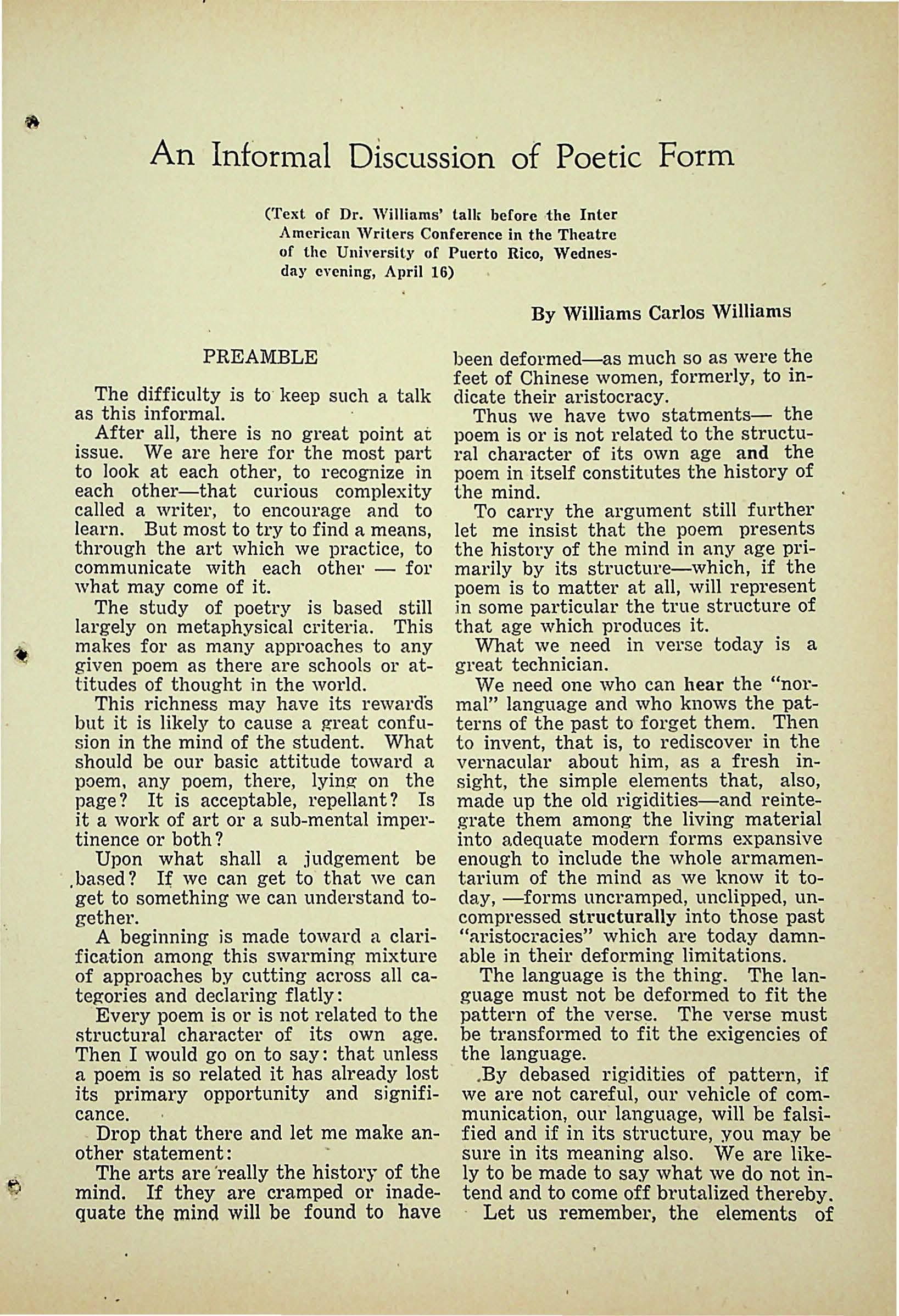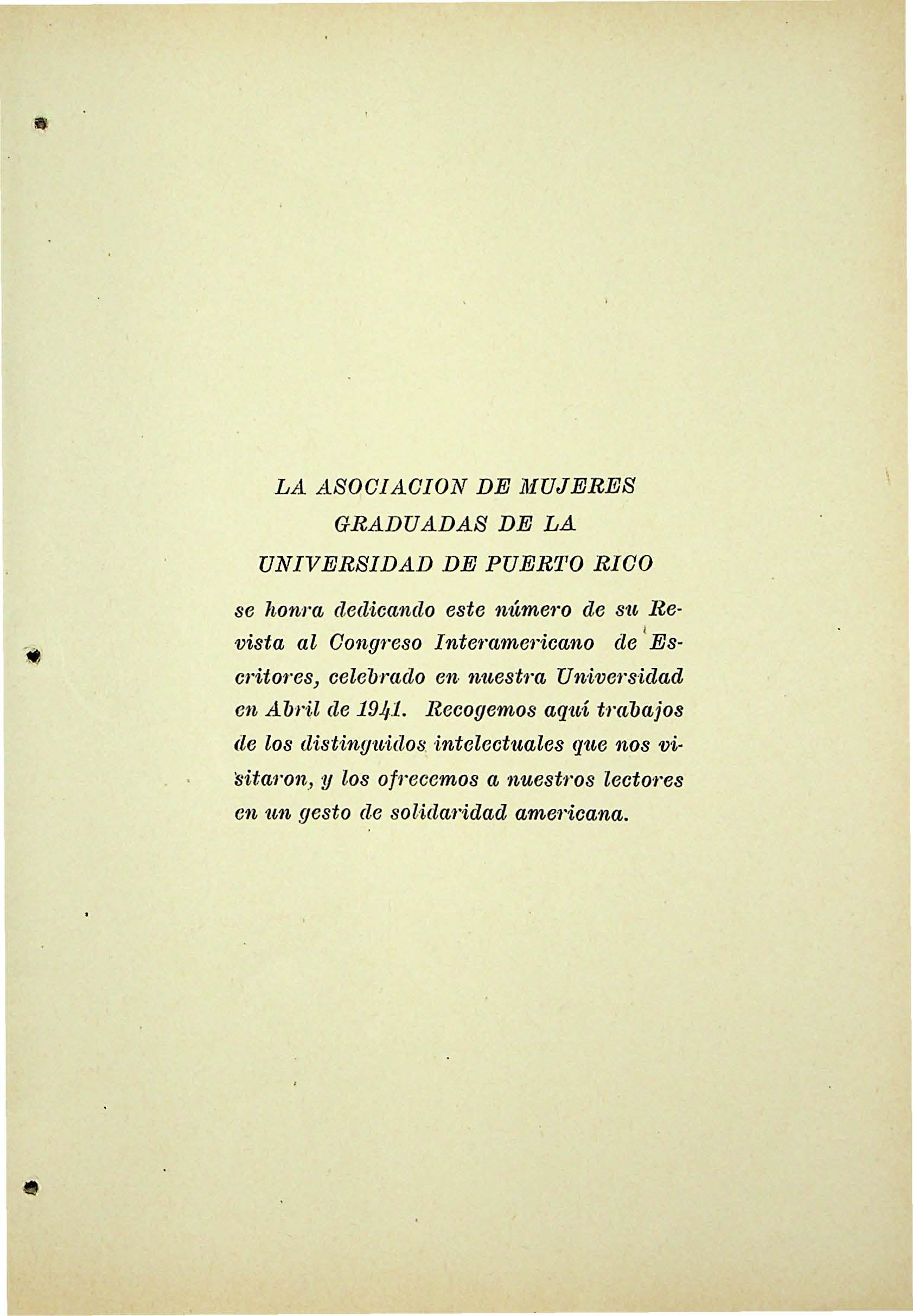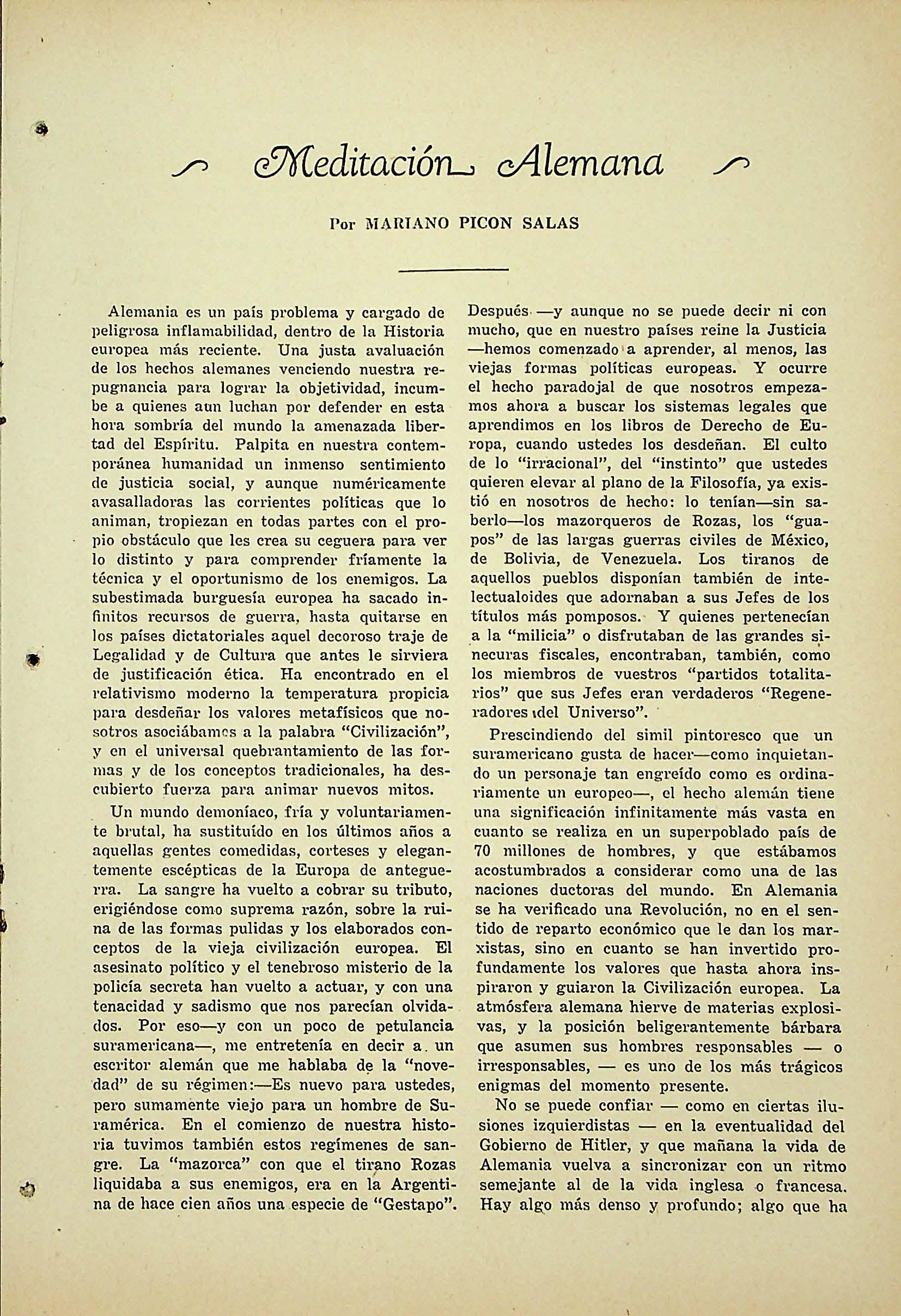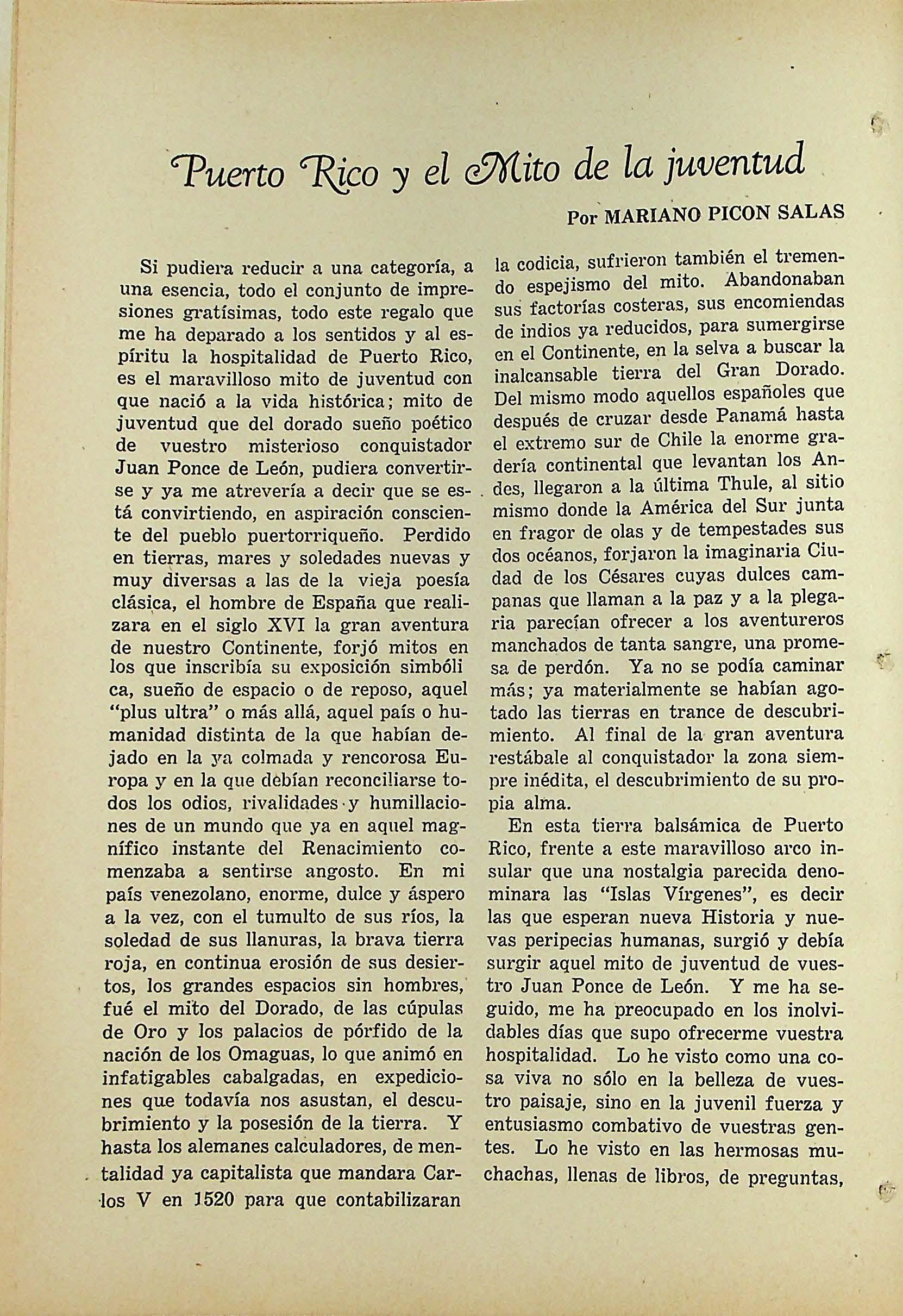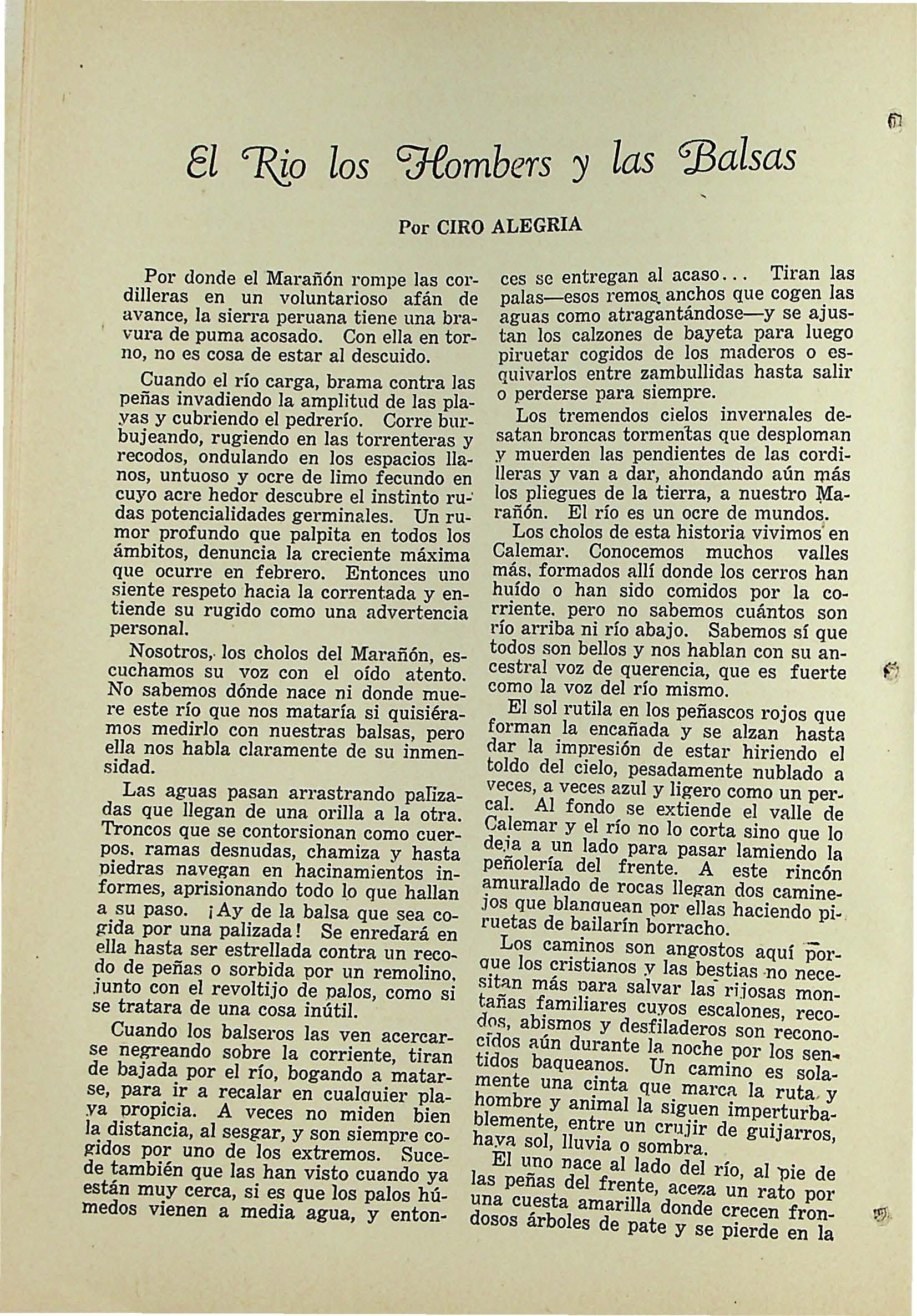An Infonnal Discussio.n of Poetic Form (Text of Dr. Williams' talle before ·the lnter American Writers Conferencc in thc Thcatrc of thc University of Puerto Rico, Wcdnes· day cvening, A11ril 16)
By Williams Carlos Williams PREAMBLE The difficulty is to keep such a talk as this informal. After ali, there is no great point at issue. We are here for the most part to look at each other, to recognize in each other-that curious complexity called a write1·, to encourage ancl to learn. But most to try to fincl a means, through the art which we practice, to communicate with each other - for what may come of it. The study of poetry is basecl still largely on metaphysical crit eria. This makes for as many approaches to any given poem as there are schools or attitudes of thought in the world. This richness may have its reward's but it is likely to cause a great confusion in the mind of the student. What should be our basic attitude towarcl a poem, any poem, there, lying on the page? It is acceptable, repellant? Is it a work of art or a sub-mental impertinence or both? Upon what shall a juclgement be .based? I{ we can get to that we can get to something we can unclerstand together. A beginning is made towarcl a clarification among this swarming mixture of approaches by cutting across ali categories and declaring flatly: Every poem is or is not related to the structural character of its own age. Then I would go on to say: that unless a poem is so related it has already lost its primary opportunity and significance. Drop that there and Jet me make another statement: · The arts are 'really the history of the mind. If they are cramped or inadequate the mind will be found to have
been deformed-as much so as were the feet of Chinese women, formerly, to indicate their aristocracy. Thus we have two statments- the poem is or is not relatecl to the structural character of its own age and the poem in itself constitutes the history of the mind. To carry the argument still further Jet me insist that the poem presents the history of the mind in any age primarily by its structure-which, if the poem is to matter at ali, will represent in sorne particular the true structure of that age which produces it. What we need in verse today is a great technician. We need one who can hear the "normal" language and who knows the patterns of the past to forget them. Then to invent, that is, to rediscover in the vernacular about him, as a fresh insight, the simple elements that, also, made up the old rigidities-and reintegrate them among the living material into adequate modern forms expansive enough to include the whole armamentarium of the mind as we know it today, -forros uncrampecl, unclipped, uncompressed structurally into those past "aristocracies" which are today damnable in their deforming limitations. The Janguage is the thing. The language must not be deformed to fit the pattern of the verse. The verse must be transformed to fit the exigencies of the language. .By debased rigidities of pattern, if we are not careful, om· vehicle of communication, our language, will be falsified and if in its structure, you may be sure in its meaning also. We are likely to be made to say what we do not intend and to come off brutalized thereby. · Let us remember, the elements of

